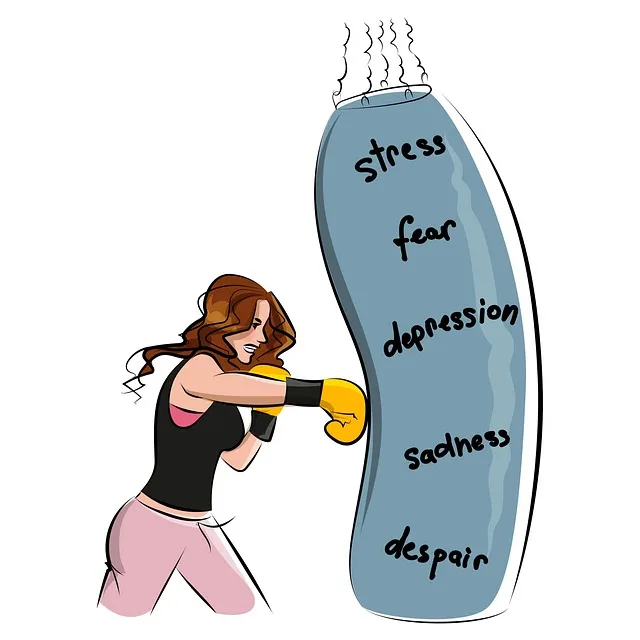Aurora Kaiser Permanente's approach exemplifies modern society's growing recognition of mental health needs, with campaigns reducing stigma and driving open conversations about psychological issues. This shift has led to user-friendly digital tools like mental wellness apps that offer personalized insights, coping mechanisms, and supportive communities. Their app integrates evidence-based practices, stress management techniques, and mood tracking, revolutionizing mental wellness support and accessibility. The development process involves thorough research, intuitive design, collaboration with mental health professionals, and rigorous testing to create inclusive, effective, and safe digital solutions for diverse therapeutic needs.
In today’s fast-paced world, mental wellness is a paramount concern. The rise of digital solutions like the Aurora Kaiser Permanente app offers promising avenues for addressing modern mental health needs. This article delves into the significance of such applications, highlighting their potential to revolutionize access to mental health services through innovative technology. We explore key features, development processes, and ethical considerations, focusing on how apps like Aurora Kaiser Permanente can foster better mental well-being in our communities.
- Understanding Mental Health Needs in Modern Society
- Integrating Technology: The Role of Aurora Kaiser Permanente App
- Key Features for an Effective Mental Wellness Application
- Development Process and Ethical Considerations
Understanding Mental Health Needs in Modern Society

In modern society, understanding mental health needs has become increasingly vital as we navigate an ever-changing world. The Aurora Kaiser Permanente mental health services highlight a growing recognition of the importance of addressing psychological well-being alongside physical health. Mental Health Awareness campaigns have played a crucial role in breaking down stigma and encouraging open conversations about diverse issues, from anxiety and depression to more complex conditions. By integrating these discussions into mainstream culture, we foster an environment where individuals feel empowered to seek support when needed.
The development of mental wellness apps is a direct response to this evolving awareness. These tools offer accessible platforms for promoting Positive Thinking, self-care, and even Social Skills Training. With the right app, users can gain valuable insights into their emotional states, learn coping mechanisms, and connect with supportive communities. This digital approach not only enhances accessibility but also enables personalized experiences tailored to individual needs, ensuring that mental health support reaches a broader, more diverse audience.
Integrating Technology: The Role of Aurora Kaiser Permanente App

The integration of technology in mental wellness services has opened new avenues for support and accessibility. One prominent example is the Aurora Kaiser Permanente app, which offers a comprehensive suite of digital tools tailored to individual user needs. This innovative platform provides a range of features aimed at improving mental health and well-being. From personalized therapy sessions to stress management techniques, it empowers users to take an active role in their emotional healing processes.
The app’s design focuses on delivering effective coping skills development through interactive exercises and resources. Users can access guided meditations, mood tracking tools, and educational content tailored to various mental health concerns. By combining professional support with digital accessibility, the Aurora Kaiser Permanente mental health services app ensures that help is readily available, making emotional well-being more manageable for all users.
Key Features for an Effective Mental Wellness Application

An effective mental wellness application should incorporate a range of key features to support users’ emotional healing processes and overall well-being. One of the central components is personalized content tailored to individual needs, whether it’s stress management techniques, mindfulness exercises, or cognitive behavioral therapy (CBT) strategies. Aurora Kaiser Permanente mental health services can serve as a model for high-quality, evidence-based practices integrated into digital platforms.
Additionally, features that facilitate emotional regulation and confidence boosting are vital. This could include mood tracking tools, journaling prompts, and virtual coaching sessions. By combining these elements, an app can create a comprehensive toolkit that enables users to manage stress, process difficult emotions, and cultivate resilience, ultimately enhancing their mental health and quality of life.
Development Process and Ethical Considerations

The development process for a mental wellness app mirrors the creation of any digital product, but with heightened sensitivity and ethical considerations. It begins with extensive research, understanding user needs through surveys, interviews, and focus groups involving individuals from diverse backgrounds, including those enrolled in Aurora Kaiser Permanente mental health services. This phase is crucial for designing an inclusive app that caters to various therapeutic needs.
Once the requirements are defined, developers create wireframes and prototypes, focusing on intuitive navigation and user-friendly interfaces. Incorporating evidence-based practices like Conflict Resolution Techniques, Empathy Building Strategies, and Self-Care Practices involves collaborating with mental health professionals to ensure the app’s effectiveness and safety. Rigorous testing and quality assurance follow to identify bugs and refine features, ensuring a seamless experience for users who rely on these services.
Mental wellness apps, such as the Aurora Kaiser Permanente app, are transforming access to mental health services in today’s digital era. By integrating technology into care, these applications offer convenient and personalized support for individuals seeking to improve their mental well-being. Key features like mindfulness exercises, mood tracking, and cognitive behavioral therapy techniques contribute to effective coping strategies. The development process must prioritize ethical considerations, ensuring user data privacy and transparency. With continuous innovation, mental wellness apps have the potential to revolutionize support systems, making them accessible and beneficial for folks navigating modern challenges.


